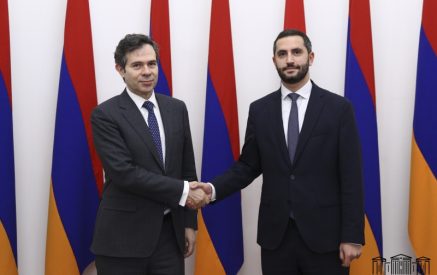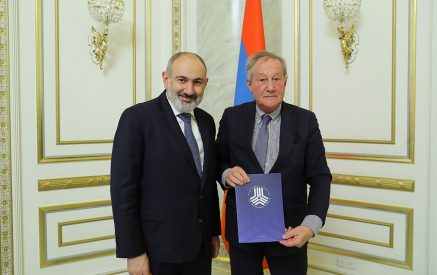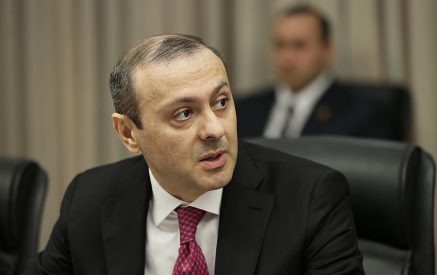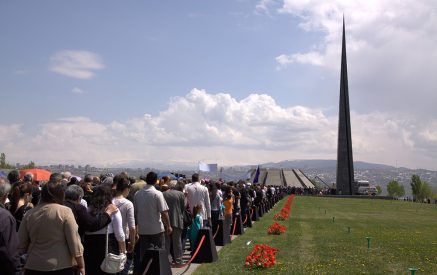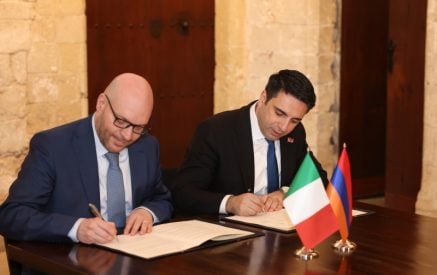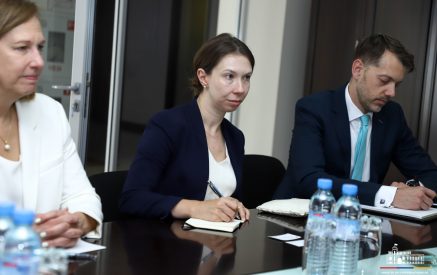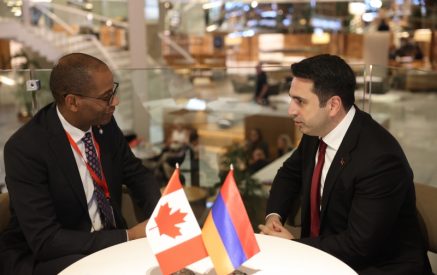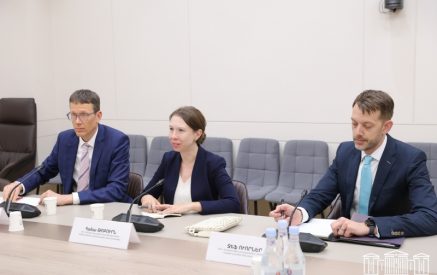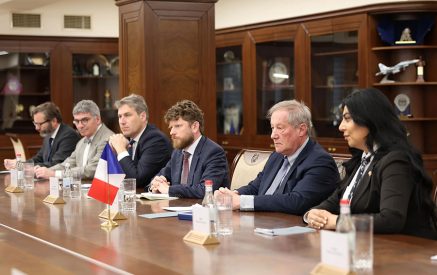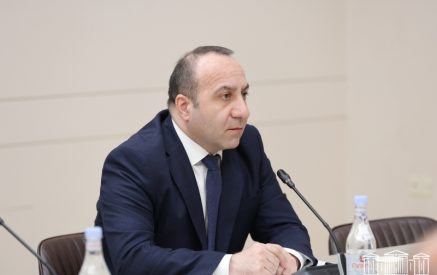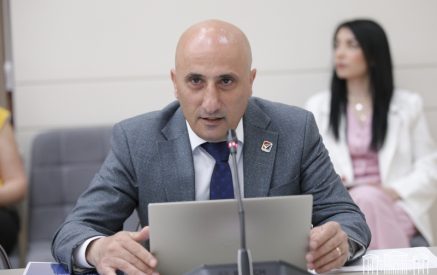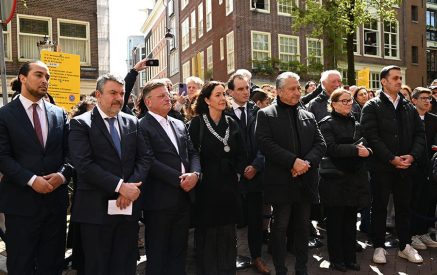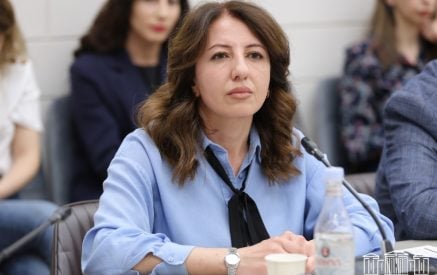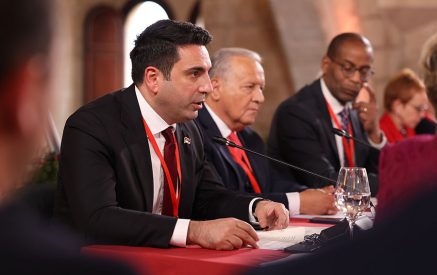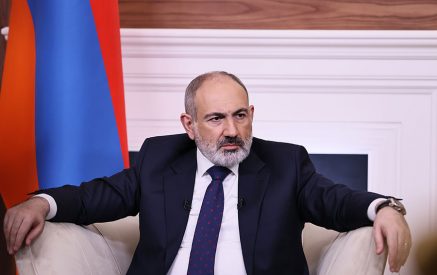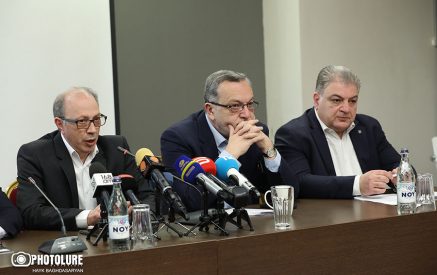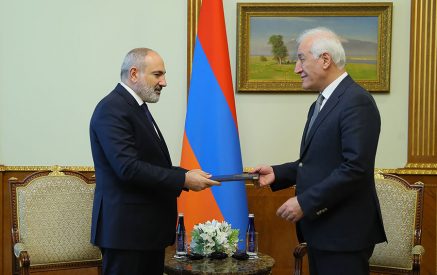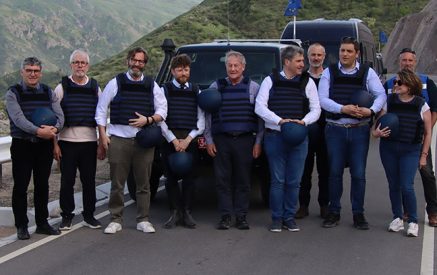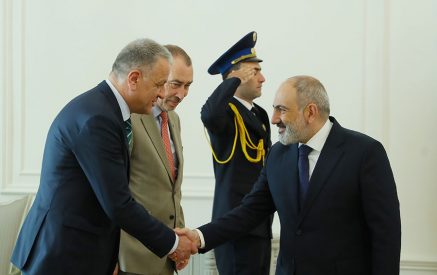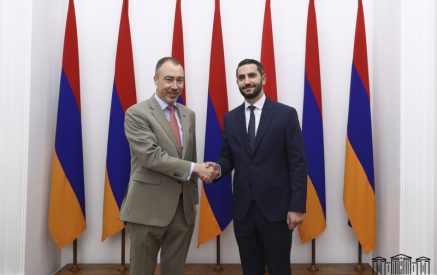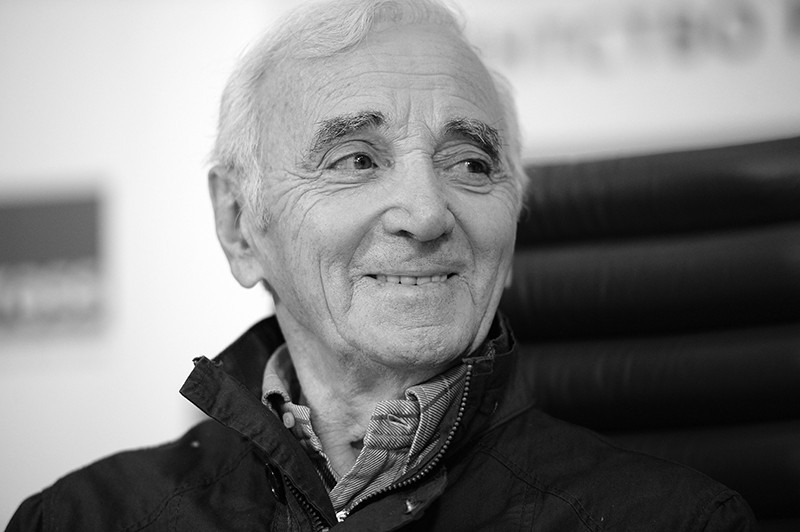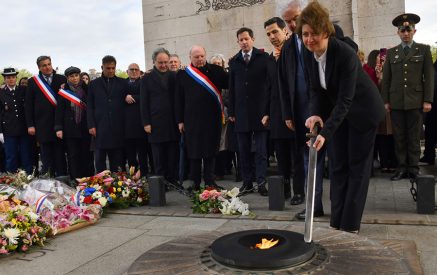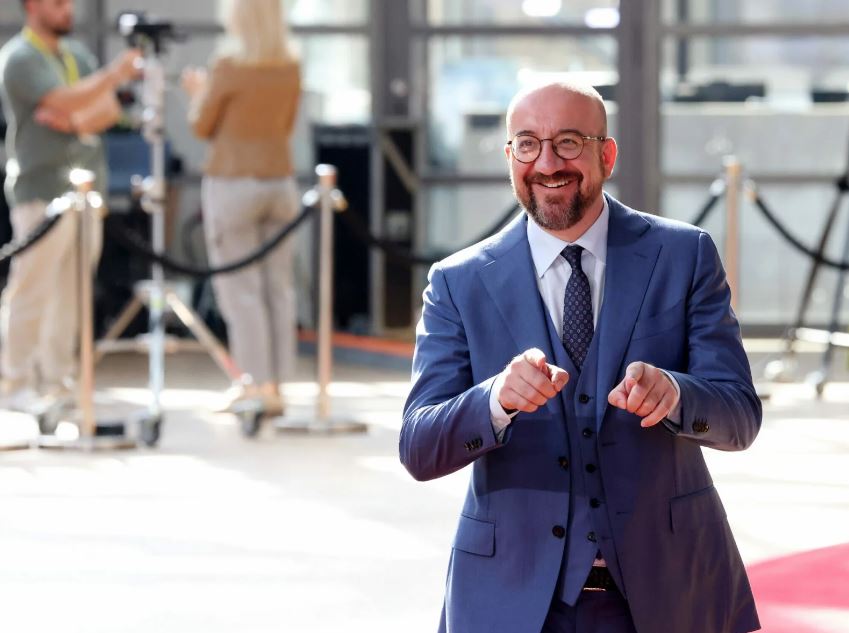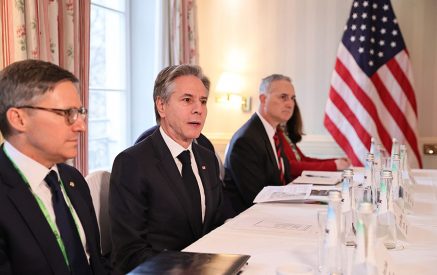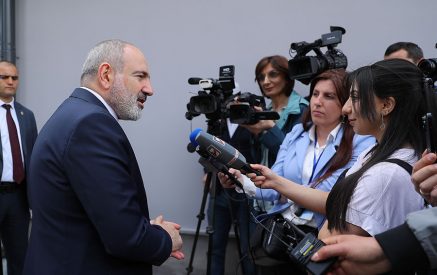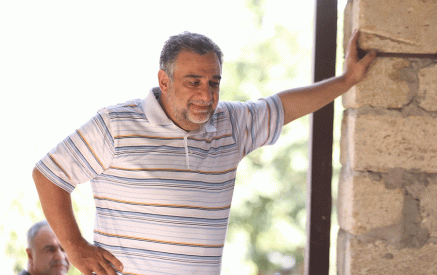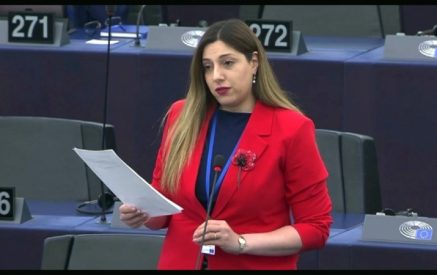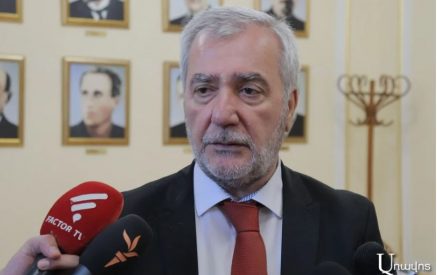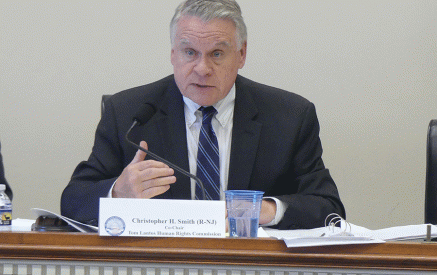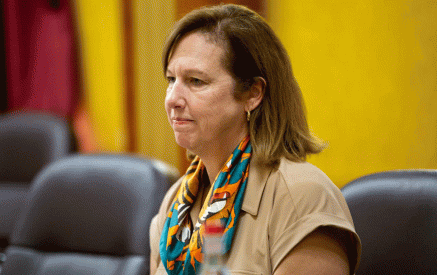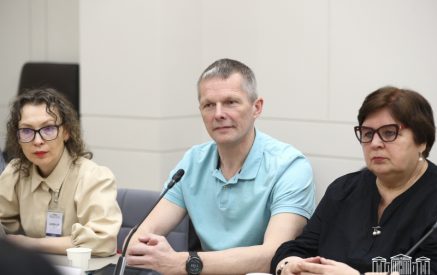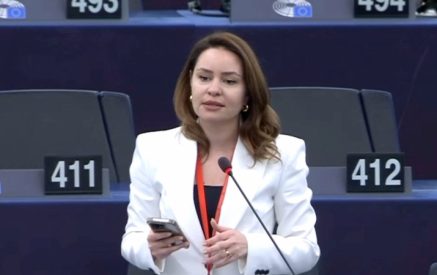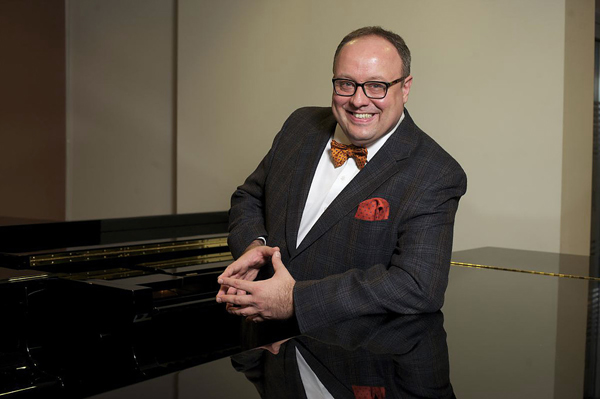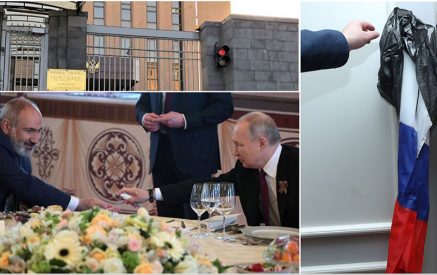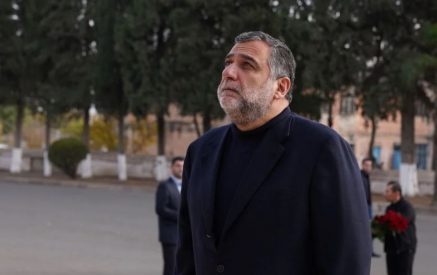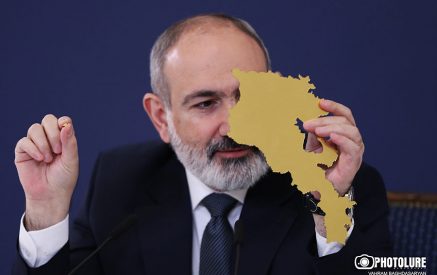Renowned pianist Alexander Ghindin about the dominant position of Jews in the field of talent and culture
Artistic Director of the international project “Musicians for Peace”, Honored Artist of Russia, pianist Alexander Ghindin kindly gave an interview to “Aravot”. He was in Yerevan these days and among other musicians, he took part in My Way concert-initiative at the Opera and Ballet National Academic Theatre named after Al. Spendiarian on March 20. We asked the virtuoso pianist whether he is confident that it is possible to solve the problems between the two countries through music, to overcome the inter-ethnic and inter-religious conflicts. The musician said that it is not possible to solve but being a real thinking man, he realizes that the global problems eventually are composed of the problems related to each person.
In his words, if something is precious and dear to you, then it is universal. “I have not set a goal to change the situation but I have set a task to voice the stance of my and my dear colleagues maximally clear and understandable… The message of the concerts in Yerevan and the previous ones is the human warmth, mutual understanding, tolerance and the respect for each other,” said our interlocutor. When talking about “Musicians for Peace” project, Ghindin stated that the project launched in 2011 has already evolved into a movement. The first concert was in Moscow, at the Christ the Savior Cathedral, which was attended by 13 pianists representing 13 countries. “These countries had religious, ethnic, state and other controversies. We proved by the concert that the musicians have nothing to do with these controversies and we are living in a different dimension. It’s a united cultural dimension where we all speak the same language. I also give much importance to the rehearsals before the concerts that are the opportunity of live contact with your friends and other musicians with whom you become friends during the concerts. Over the years, our project has obtained great scopes,” said the renowned pianist. Alexander Ghindin was especially impressed by the concert at the UN General Office in Switzerland, on 21 September 2015, on the World Day of Peace, he said that it had a large resonance. We were curious to know whether it is essential for him what piece of work he performs and whether it happens for him to demonstrate ambitions as a high-qualified musician and refuse to perform the some works. “Certainly, it happens…To the point, Richter used to say, there are no bad pianos, there are poor pianists though he was a little crafty here. Music is different, of different nationalities, centuries, different genres and styles… The main standard in all this is the giftedness. As to what a talent is, many books have been written on this subject, it is very difficult to formulate it in one or two words. But if the music is talented and you feel it, naturally, you should perform it definitely,” says pianist.
To our next question of whether he has favorite composers or works, Ghindin replied, “Having favorite composers is a luxury that the fans can afford. I am a professional who has a very broad repertoire, I am also one of the curious musicians who are interested not only in the work. The pianists can have up to 1000 piano repertoire and if you can perform 2000 pieces of work, then you are a developed person as a musician, in addition, in terms of the instruments, we are lucky because an ocean of wonderful music is written for the piano. Some of them are known, others not yet. Therefore, the number of favorite composers can be very big, they are so different, so wonderful, and it is impossible to compare Mozart with Debussy or Bach with someone else. It is the same as you ask, “Do you like Jupiter or Saturn?” They are different planets, each of them has its own gravity, each of them reflects the light in its own way and all of them are created by the Lord God. Therefore, I cannot single out any of them.”
We asked whether he is not afraid to appear in the “black list” of Azerbaijani after giving a concert in Artsakh. “No, I am not afraid and I will not hide the fact from you that I have been to Baku and have given concerts there too. I consider myself a citizen of the world. Among my colleagues, each of us knows who is who,” replied the musician.
We asked to assess the Armenian audience as Ghindin has been in Yerevan many times. “You have a wonderful audience. I am convinced as a result of my several concerts. Historically, it has happened so that your and our countries have close ties since the Soviet period, especially culturally. Incidentally, my music school teacher who shaped my future was an Armenian woman. I know many wonderful Armenian music teachers, Armenia has a serious piano and conducting schools, these very traditions educate the audience, which is not obtained in one day and not lost so easily. The traditions of perceiving classical music are alive and continue to be here. It is thanks to the intellectual layer who consider the classical concerts as part of its life and cannot live without it. Incidentally, like all the southern countries, Armenia is a very kind and friendly, and it is very easy to play here. Usually, at times, you have a feeling on the stage that you have to prove that you are a good one. People here believe that you’re a good one. And if they think the opposite, you cannot change this mindset. I feel free at the concerts in Armenia and the input of the audience in is great,” says Honored Artist of Russia confidently.
What advice he will give to the young pianists. Ghindin’s most important advice is to love the music and the instrument wholeheartedly, “Love has no price, it cannot be bought with money, and sometimes it works against you. Love is sometimes cruel because it happens that the subject of your love does not respond to you in the same way and you live not with this subject but your feeling. This also applies to music.” We asked Jewish-origin Alexander Ghindin whether he agrees with the widespread viewpoint that generally, the Jews change things in the sphere of culture in the world, they are the ones who solve the problems and make decisions. In response, the pianist first smiled broadly and then recalled the “Jewish” censorship in Soviet years under which people were forced to change their last names.
Then he referring to the music talent, the famous musician noted, “By and large, it does not matter for the Lord God whom to kiss, he is blind in that sense. Perhaps, due to family traditions, it turned so that there are many Jews in the cultural sphere but all are equal before the music.” Alexander Ghindin is against the square slogans in the cultural sphere, he says that they hinder to create while the task of the artist, in this case, his task is to try to be honest before the audience by using his own talents to the maximum. “You can be crafty in the life and during the rehearsals as much as you want but not on the stage. Especially, the great stage is an X-ray exam room and what you think inwardly, even unintentionally, is clearly seen and heard on the stage. The worst thing would be if you pretend what you are not and be crafty before your audience and colleagues. You must be honest and be convincing as possible thanks to your talent,” said the virtuoso pianist in confidence. He also recalled years ago the artistic director of the Moscow Philharmonic Symphony Orchestra, renowned conductor Yuri Simonov’s advice: not to play at the same time during the rehearsals simultaneously with the orchestra, “It was my first concert, he said, Sasha, if you play with the orchestra simultaneously, thus I cannot know what you want. These are golden words that I learned them once and forever… If we give way to each other during the rehearsals, as a result, your partner will know what material you are created from and you will know what he represents. And the sooner it works, the sooner are the result, and we will begin plastering what we want….”
Gohar HAKOBYAN
Photo from alexanderghindin.com
“Aravot” Daily

